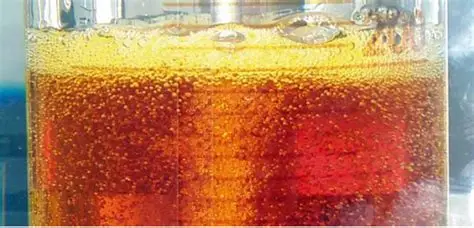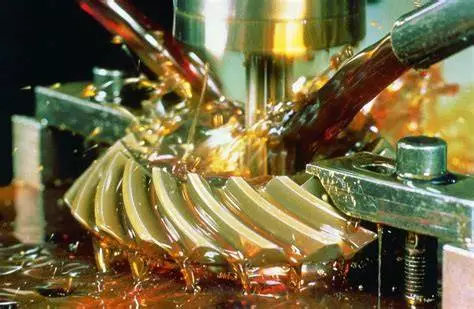Additive packages
Time:
2025-10-29
What is an additive package?
To get a grasp of what an additive package is, we should first understand what a lubricant additive is. Usually, additives are put in lubricating oils or greases to make certain features better. For example, antioxidants make the oil resist breakdown from oxygen better and stop it from aging. There are also extreme pressure anti-wear agents that use sulfur, phosphorus, boron, molybdenum, etc., to make lubricating oils better at handling extreme pressure and preventing wear. Also, there are sulfonate detergents and rust inhibitors, and polyisobutylene polymeric dispersants that don't leave ash. These are all lubricating oil additives, and each one gives the performance needed to handle different needs and situations today.
Just using these lubricating oil additives by themselves isn't easy and needs special skill. Additives are usually chemicals that act in certain ways. If you use them without careful thought, bad things could happen, or there could even be accidents. Because of this, lubricating oil additive companies use technical studies, formula tests, and real-world checks to create additive packages. These packages have all the working additives needed for a certain kind of lubricating oil. This lets lubricating oil makers create oils that meet rules without needing detailed knowledge of lubricating oil additive tech.

Additive packages for engine oil
Additive packages are commonly used products in engine oil. Think of the car’s engine. The oil inside needs to do a lot such as reducing friction, keeping components clean, and preventing corrosion. Over time, oil breaks down, and that’s where additive packages come in. They replenish what's lost and provide extra protection. An additive package typically contains detergents to clean deposits, antioxidants to slow oil breakdown, and anti-wear agents to protect metal features.
Engine oil additive packages are specially made mixtures designed to boost the performance of engine oil. These packages usually contain a variety of ingredients blended to improve different aspects of how the oil works.

One of the key things these packages do is improve the oil's ability to keep your engine clean. Detergents and dispersants are added to prevent sludge and varnish from building up on engine parts. This keeps everything running smoothly and helps prolong the life of your engine.
Another important benefit is to shield against wear and tear. The packages include anti-wear agents that form a protective layer on metal surfaces. This reduces friction and wear between moving parts, which is especially important in high-stress areas like bearings and valve trains.
They also help to control how the oil reacts to temperature changes. Viscosity improvers are included to keep the oil from thinning out too much when it gets hot and from thickening too much when it gets cold. This ensures that the oil provides good lubrication across a wide range of temperatures.
Rust and corrosion inhibitors are also part of the mix. These create a barrier that shields metal surfaces from moisture and corrosive acids that can form inside the engine. This helps to keep rust at bay and extends the life of engine components.
Foam can be a problem in engine oil, as it reduces the oil's ability to lubricate properly. Anti-foam agents are added to break down air bubbles and keep the oil flowing smoothly.
In short, engine oil additive packages are a blend of chemicals designed to do a few crucial things: keep your engine clean, shield it from wear, control oil viscosity, prevent rust and corrosion, and reduce foaming. By using these additive packages, you enhance the performance of the base oil and provide better protection for your engine.
Additive packages for industrial lubricant
Industrial lubricants get a big boost from additive packages. These mixes of chemicals are like vitamins for your machinery's oil, giving it properties it wouldn't have on its own. Think of it this way: regular oil is good, but oil with the right additives is great.

So, what do these additive packages do? They tackle several problems at once. They can help the lubricant stick to metal parts better, which is really important when things get hot and heavy. These additives also fight wear and tear by creating a protective layer on the surfaces that rub together. This means less friction, lower temperatures, and parts that last longer.
Rust and corrosion are big enemies of any machine. Additive packages include rust inhibitors and corrosion preventives that shield metal surfaces from water and acids. This is especially vital in places where humidity is high or where there’s exposure to harsh chemicals. Besides, some additives clean as they go, suspending dirt and debris so they don’t gunk up the system. They keep sludge from forming and ensure that the lubricant keeps flowing smoothly.
Foam can be a major problem in lubricants, leading to issues with pump and lubrication. Defoamants break down bubbles before they cause issues, ensuring consistent lubrication. Viscosity modifiers help lubricants maintain their thickness across a wide range of temperatures. This is key for machines that operate in both scorching heat and freezing cold. Antioxidants prevent the oil from breaking down, which extends its life.
Picking the right additive package depends on what the lubricant needs to do. Hydraulic systems need additives that protect against wear and prevent rust. Gearboxes benefit from additives that can handle extreme pressure and reduce friction.
Next page
Next page
PRODUCTS CENTER
MORE BLOG
2025-12-17
2025-12-16
2025-11-09
CheMost
CheMost Additives CO.,LTD
ADDRESS: CheMost Additives CO.,LTD, Jinzhou city, Liaoning provice, China
To learn more about CheMost, please click the button to contact us anytime.
Get product catalogCopyright© 2025 CheMost Additives CO.,LTD
Website:300.cn jinzhou.300.cn | SEO | Privacy Policy





